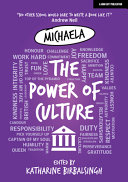

The book emphasizes the critical role that teachers play in shaping educational reform and innovation. Teacher leadership is presented as a vital component of effective schools, where educators are not just implementers of policy but active contributors to decision-making processes. The authors argue that empowering teachers to lead can enhance their professional satisfaction and improve student outcomes. They provide examples of successful teacher-led initiatives, highlighting how collaborative leadership can create a culture of shared responsibility and continuous improvement within schools.
Continue readingCollaboration is a central theme in 'Tiger Teachers Take Two.' The authors advocate for fostering a strong sense of community among educators, which is essential for professional growth and student success. They illustrate how collaborative practices, such as peer observations and co-planning, can lead to richer teaching experiences and better student engagement. The book also discusses the importance of building relationships with families and the wider community, suggesting that schools are most effective when they operate as community hubs that support learning both inside and outside the classroom.
Continue readingThe authors stress the importance of using data to inform teaching practices and school policies. They argue that data should not only be used for accountability but also as a tool for improvement. By analyzing student performance data, teachers can identify areas of need and adjust their instruction accordingly. The book provides practical strategies for teachers to collect and use data effectively, emphasizing that a data-driven approach can lead to more targeted interventions and ultimately better educational outcomes.
Continue readingThe book highlights the significance of culturally responsive teaching as a means to address the diverse needs of students. The authors argue that understanding and valuing students' cultural backgrounds can enhance engagement and learning. They provide insights into how teachers can incorporate students' experiences and perspectives into their curriculum, fostering an inclusive environment that respects and celebrates diversity. The discussion includes practical examples of culturally relevant pedagogy and its impact on student motivation and achievement.
Continue readingProfessional development is framed as an ongoing process rather than a series of isolated workshops. The authors encourage educators to view their professional growth as a lifelong journey that involves reflection, collaboration, and continuous learning. They suggest that schools should create a culture that supports professional development by providing time, resources, and opportunities for teachers to engage in meaningful learning experiences. The book outlines various models of effective professional development that are aligned with teachers' needs and goals.
Continue readingThe authors explore various innovative teaching practices that can enhance student engagement and learning. They discuss the integration of technology into the classroom, project-based learning, and other student-centered approaches. The book provides case studies of teachers who have successfully implemented these practices, showcasing their positive impact on student motivation and achievement. The authors advocate for a willingness to experiment and adapt teaching methods to meet the evolving needs of students in a rapidly changing world.
Continue readingReflection is presented as an essential component of effective teaching. The authors argue that teachers must regularly reflect on their practices, experiences, and student outcomes to grow professionally. They provide strategies for reflective practice, such as journaling, peer feedback, and self-assessment. The book emphasizes that reflection not only enhances individual teaching effectiveness but also contributes to a culture of continuous improvement within schools.
Continue readingThe reading time for Tiger Teachers Take Two depends on the reader's pace. However, this concise book summary covers the 7 key ideas from Tiger Teachers Take Two, allowing you to quickly understand the main concepts, insights, and practical applications in around 25 min.
Tiger Teachers Take Two is definitely worth reading. The book covers essential topics including The Importance of Teacher Leadership, Collaboration and Community Building, Data-Driven Decision Making, providing practical insights and actionable advice. Whether you read the full book or our concise summary, Tiger Teachers Take Two delivers valuable knowledge that can help you improve your understanding and apply these concepts in your personal or professional life.
Tiger Teachers Take Two was written by Katharine Birbalsingh.
If you enjoyed Tiger Teachers Take Two by Katharine Birbalsingh and want to explore similar topics or deepen your understanding, we highly recommend these related book summaries:
These books cover related themes, complementary concepts, and will help you build upon the knowledge gained from Tiger Teachers Take Two. Each of these summaries provides concise insights that can further enhance your understanding and practical application of the ideas presented in Tiger Teachers Take Two.